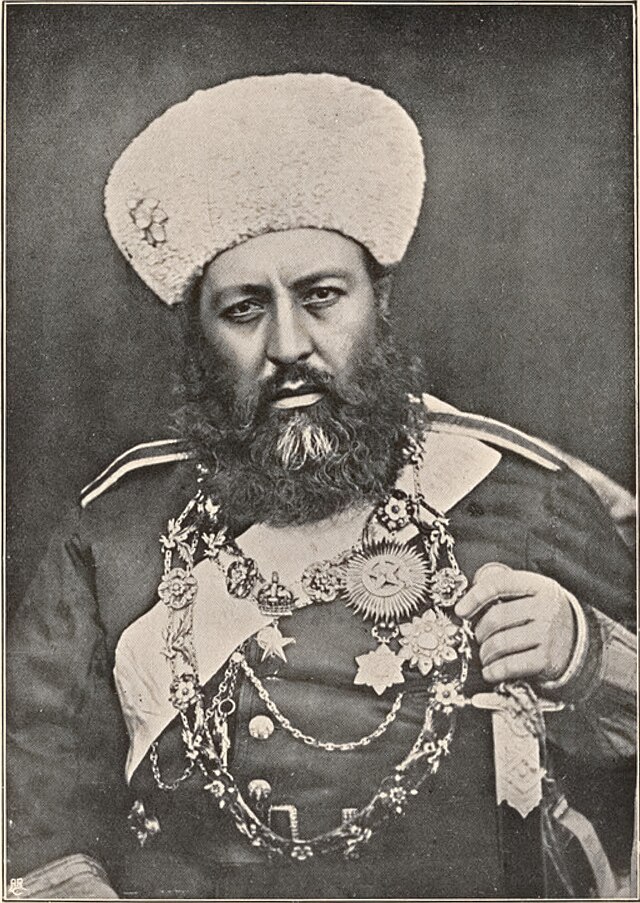Abdur Rahman Khan: Difference between revisions - Wikipedia
 Article Images
Article Images
Content deleted Content added
Line 31: Abdur Rahman Khan was the one and only son of [[Mohammad Afzal Khan]], and grandson of [[Dost Mohammad Khan (Emir of Afghanistan)|Dost Mohammad Khan]], founder of the [[Barakzai dynasty]]. Abdur Rahman Khan re-established the writ of the [[Politics of Afghanistan|Afghan government]] after the disarray that followed the [[Second Anglo-Afghan War|second Anglo-Afghan war]].<ref name="Bijan Omrani">{{cite journal |last1=Omrani |first1=Bijan |title=Afghanistan and the Search for Unity |journal=Asian Affairs |date=July 2007 |volume=38 |issue=2 |pages=145–157 |doi=10.1080/03068370701349086 |s2cid=162273503 |url=https://www.tandfonline.com/doi/full/10.1080/03068370701349086 |access-date=18 September 2022}}</ref> He became known as ''The Iron Amir'' because his government was a military [[despotism]]. This despotism rested upon a well-appointed army and was administered through officials subservient to an inflexible will and controlled by a widespread system of [[espionage]].{{sfn|Chisholm|1911|p=38}} The nickname, ''The Iron Amir'', is also associated due to his victory over a number of rebellions by various tribes who were led by his relatives.<ref name="Britannica">{{cite web |url= http://www.britannica.com/EBchecked/topic/871/Abd-al-Rahman-Khan |title = ʿAbd al-Raḥmān Khān |access-date=15 July 2013}}</ref> One source says that during his reign there were over 40 rebellions ==Early life== | |||